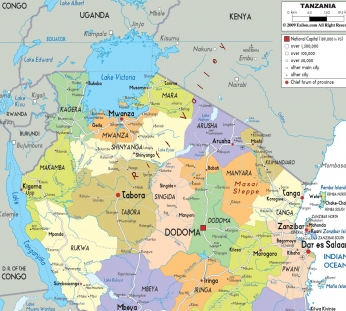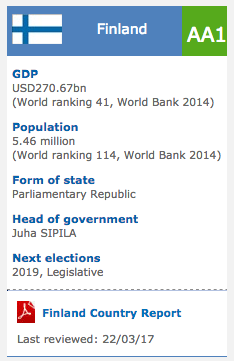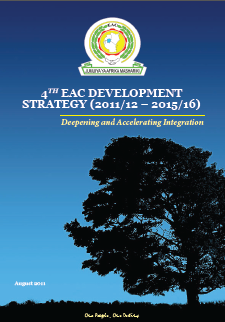
Tanzania
Capital: Dodoma (official), Dar es Salaam (commercial); GDP growth (annual %) 2016 : 7.0%;-
Africa’s economic growth in 2016 was driven by East Africa
While the continent’s major economies were hit by the fall in commodity prices in 2016, Africa retained its position as the second-fastest growing continent globally recording an average of 2.2% GDP increase, behind only South Asia, according to the African Development Bank Group (AfDB).
Much of Africa’s increase in 2016, AfDB says, was driven by East Africa where several nations recorded “strong performances.” In general, of the continent’s sub-regions, East Africa posted the highest increase rate with 5.3%, led by Ethiopia.
More > -
Africa property offers rich pickings for the brave
Some property pundits believe there are major opportunities for investors or companies on the continent.
While most pundits will acknowledge that the saying “Africa is not for sissies” rings authentic at the same time as it comes to property investment , some commentators believe that there are major opportunities for investors on the continent.
More > -
Bill Gates sees US likely to maintain aid levels for Africa
The US will probably maintain its current levels of aid to Africa despite President Donald Trump’s proposals to slash funding, according to Bill Gates, the world’s richest man.
Trump said in May his government would no longer allocate funding for family planning, a move that has the potential to undermine aid programs in the poorest nations in the world. However, with Congress in control of the budget, it’s unlikely that all cuts proposed by the Trump government will go ahead next year, Gates said in an interview in Dar es Salaam, Tanzania’s commercial capital.
More >
- Key Facts
-
Full name: United Republic of Tanzania
Population: 45 million (UN, 2010)
Area: 945,087 sq km (364,900 sq miles)
Major languages: English, Swahili
Major religions: Christianity, Islam
Life expectancy: 57 years (men), 59 years (women) (UN)
Monetary unit: 1 Tanzanian shilling = 100 cents
Main exports: Gold, sisal, cloves, coffee, cotton, cashew nuts, minerals, tobacco
GNI per capita: US $530 (World Bank, 2010)
Internet domain: .tz
International dialling code: +255
-

Top 10 Most Attractive Investment Destinations In Africa
2017/08/20Africa’s feverish increase has decelerated in recent years and a lot of nations have buckled under the pressure of falling resource prices, security disruptions, fiscal imprudence and adverse weather conditions.
-

Africa's Relationship With China Is Ancient History
2017/07/02In 2002 South Africa's Parliament unveiled a digital reproduction of a map - of China, the Middle East and Africa - that some speculated could be the initial map of the African continent. The Da Ming Hun Yi Tu - the Comprehensive Map of the Great Ming Empire - was drawn up around 1389 during the Ming Dynasty, according to historian Hyunhee Park.
-

Climate change laws around the world
2017/05/14There has been a 20-fold increase in the number of global climate change laws since 1997, according to the most comprehensive database of relevant policy and legislation.
The database, produced by the Grantham Research Institute on Climate Change and the Environment and the Sabin Center on Climate Change Law, includes more than 1,200 relevant policies across 164 countries, which account for 95% of global greenhouse gas emissions.
-

Africa’s 20 most attractive countries for investors – Ernst & Young
2016/05/16Despite its economy slowing down, South Africa remains Africa’s most attractive country for investors, according to the 2016 Ernst & Young Africa Attractiveness Index.
The statement evaluates evolution made in governance, diversification, infrastructures, business enablement, human development inclunding resilience to current macroeconomic challenges.
Morocco is ranked second on the index, followed by Egypt, Kenya, Mauritius, Ghana Botswana, Tunisia and Rwanda. Cote d’Ivoire comes tenth.
Africa’s top economy, Nigeria comes 15th, mainly because of its poor performances in terms of governance and human improvment(See full ranking below).
-
The development of mobile financial services in Tanzania is bringing the high number of unbanked residents into the economy.
2014/12/22Tanzania identified mobile financial services as being crucial to enhancing access to and usage of financial services part the unbanked people in our national financial inclusion framework, which was launched in 2013. Through the contribution of mobile financial services, the number of financially excluded people in Tanzania has by presently been additional than halved to 27% of adults as of 2013, compared with 55% in 2009, at the same time as mobile financial services were introduced to the country.
-
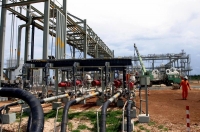
Tanzania possesses tremendous energy potential
2014/12/22There is little doubt that Tanzania possesses tremendous energy potential. Recent offshore gas discoveries estimated to run into the hundreds of trillions of cubic feet have led a lot of experts to project that Tanzania could be a middle gain country by 2025.
-
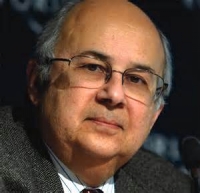
Raising the bar on agricultural innovation
2013/04/13Technological innovation, particularly in mobile, will be critical to improving agricultural productivity, but R&D funding must be ramped up next years of neglect
At the same time as Ismail Serageldin, director of the Library of Alexandria, told the World Intellectual Property Organisation (WIPO) that world people increase meant food production would have to increase by 70 % by 2050, using the same amount of water, he identified agricultural innovation as the key to solving the problem.
-

Africa: Making Things Happen at the Bank - 'Not a Talk Shop' - Akin Adesina
2017/07/02Dr. Akinwumi Adesina is focusing on five areas to achieve the African and world goals for a prosperous continent since becoming president of the African Development Bank - Africa's major public financial institution in September 2015. He was a keynote speaker at this month's Corporate Council on Africa's U.S.- Africa Business Summit in Washington D.C. and moderated a lively panel with five African government ministers. He as well received the Gene White Lifetime Succcess Award from the World Child Nutrition Foundation. This week, he was named the 2017 recipient of the World Food Prize, a prestigious honor that includes a $250,000 award. In an interview in Washington, DC, Adesina discussed the Development Bank's ambitious schedule and his vision for attracting the increase capital Africa needs. Posting questions for AllAfrica was Noluthando Crockett-Ntonga.
-
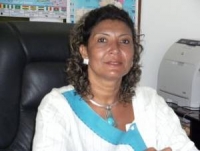
Maria Helena Semedo
2012/12/26The African Green Revolution Forum held earlier this year in Arusha, Tanzania, aimed to put smallholder farmers at the center of the conversation about improving agricultural productivity in Africa. We spoke to Maria Helena Semedo, the Food and Agriculture Organisation's assistant director-general and regional representative for Africa, to discuss her views on the role of smallholder farmers and what key commitments and actions she hopes to see in the near future that will increase their productivity.
-
Outlook for 2013-17
2013/10/10OVERVIEW
The president, Jakaya Kikwete, and his party, Chama Cha Mapinduzi (CCM), will continue to dominate the political scene. The CCM and its next presidential candidate (Mr Kikwete cannot stand again) are expected to win the 2015 election, albeit with the opposition securing better representation.
The fiscal deficit is estimate to moderate from 6% of GDP in 2012/13 (July-June) to 4.3% of GDP in 2016/17 as steady (if unspectacular) evolution is made in curtailing recurrent spending increase and expanding the domestic revenue base, half by scaling back tax exemptions.
- Business / TradeMore >
- Construction projectsMore >
- Petroleum / Mining More >
- Stock Market / FinanceMore >
- Art / Culture
- Tanzania News
-
- ECONOMY: Africa’s economic growth in 2016 was driven by East Africa
- REAL ESTATE: Africa property offers rich pickings for the brave
- SOCIAL / CSR: Bill Gates sees US likely to maintain aid levels for Africa
- BUSINESS / TRADE: Gas - Women Yet to Benefit From National Cake Tanzania
- SOCIAL / CSR: Tanzania: TWA Launches Portal for Girls' Economic Growth
- EVENT: Africa: Graca Challenges Women, Girls to Grab Emerging Opportunities
- Trending Articles
-
- BOTSWANA: Bill Gates sees US likely to maintain aid levels for Africa
- NIGERIA: The city that won't stop growing, Lagos
- EUROPEAN UNION: UK seeks to 'align' with EU on data protection rules
- ANGOLA: Buhari Among African Presidents Who Lack Faith in Own Health Systems
- PAKISTAN: Qatar launches new direct sea route to Pakistan
- BOTSWANA: Africa’s economic growth in 2016 was driven by East Africa










